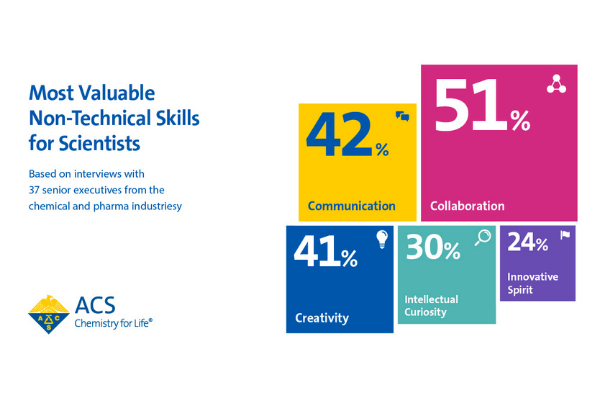
Key Takeaways:
- Jennifer Holmgren shares what attracted her away from her growing career at UOP
- Holmgren reflects on her parents’ influence on her leadership style
- The one trait Holmgren wishes she had more of
What was it about LanzaTech that attracted you away from a great career at UOP? What was the biggest surprise in jumping from the corporate to VC world?
I think it is fair to say that what interests me is working on projects that can be platforms and on projects that other people say can’t be done.
I have always been interested in what new possibilities are coming from the latest research, but I learned early in my career that the key to success is not just having a novel technology with a lot of potential. You also need to be serious about deploying it into the global economy. You have to make a business out of it. The attraction to LanzaTech came from the opportunity to marry a new disruptive technology with a significant business opportunity where scale up was possible. A technology like LanzaTech’s is based on waste carbon, something that is abundant, and makes for a massive deployment proposition!
I love working with the technology and the business, but my job gives me and the rest of LanzaTech’s team great joy to know that the benefits of a successful renewable energy business will go far beyond the profits we will report.
The biggest surprise in jumping from corporate to the VC world was how hard it is to work without infrastructure. I always figured it would take significant energy to get things moving in a small company, but doing everything from scratch…ouch.
Among other responsibilities at LanzaTech, you are in the business of leading teams. What makes for a great leader of teams?
Listen.
Lead by example-don’t expect anyone to do anything you wouldn’t be prepared to do yourself.
Surround yourself with people better than you!
Demand excellence from yourself and from your team.
Make sure you and your team know why what you are doing matters.
How have your parents influenced your leadership style?
My parents have had a great deal of influence on me, and I think that has been reflected in my leadership style. They showed me the importance of being inclusive and of accepting others. They had an optimistic outlook that helped me take on tough challenges, including taking risks.
As a leader, I believe in taking risks, especially when knowing that what we are trying to do must be done and that there is no downside to failure; the only downside is not trying. This is something my parents showed me. They were incredibly courageous as they moved our family from Colombia to the US. That was a huge risk, as they were leaving their friends and family and entire support network to take their kids to a better place.
With respect to your scientists at LanzaTech, what non-technical skills do you most highly value?
Asking questions and challenging the status quo. Being able to attack data and read between the lines is often what helps us move forward. Would also add (not really a skill) but perseverance, as this is a tough gig and we have a bit more to go on our journey!
In a July 2019 address at an ARPA-E meeting, you described a very time-intensive and financially expensive process to transition an idea to commercial reality. Do the U.S. government and the investment community have the patience to delay gratification for ten or more years for this approach to work?
We work with government and with investors and they are very patient! I think there is an understanding that what this sector is doing is not going to happen overnight, and that to truly disrupt the status quo it will take time. The cost of inaction is way more than waiting for solutions to deploy and this is becoming clearer to governments, investors and whole industries today.
But I don’t think this is about patience, it’s about how much more our planet can take. 2050 is too late to start making change; 2030 is around the corner, and when you think about how long it takes to get investment and then steel in the ground and start operating new technologies, we are pretty much up against the wall already!
So we really must continue investing and supporting and taking as many shots on goal as we can, because it won’t take one silver bullet solution to solve our climate woes: it will take a basket of solutions, at different scales, using different approaches, but all supporting a common goal of reducing the carbon in our atmosphere.
During that same address, you said, “A prediction is nothing more than an extrapolation of the past.” You used that statement to explain how some very smart people such as Lord Kelvin, Thomas Watson, and Bill Gates could make – on occasion -- such thoroughly misguided predictions about the future of science and technology. As you are thinking about the future of your business, how do you avoid falling into that same trap?
One of LanzaTech’s values is to “Be inquisitive”. In our early days, we would laugh that we had a table full of PhD’s and our meetings took forever because while they were all experts in their respective fields, they didn’t fully understand what their peers were working on or indeed how they approached problems. This has enabled us to foster a culture of integrated learning rather than have a team who is dogmatic about the approach to take when tackling a problem. I think this is the key to avoiding the trap of forming predictions from a tightly focused position of expertise. Gathering wide ranging inputs across disciplines, using peers as sources for learning rather than trying to convince them that your way is right. And when you find out you are wrong? Embrace the loss as much as you would the win!
If we didn’t fail or get things wrong, we wouldn’t try again and find the right answer. I think we are very much at risk of falling into that trap right now, with the global climate reports showing scenarios that pin their hopes on a narrow range of solutions. The only way we can avoid falling into this kind of trap is by seeking inputs from a range of sources and not trying convince everyone that there is only one solution, one magic bullet. We need to adopt a technology neutral approach by listening to others from a range of backgrounds, and being curious about all potential solutions, not just those we are experts in.
Your efforts at Torial represented some of the earliest interest in high-throughput research for the chemical industry. Any comments on the state of high-throughput experimentation today? Did progress in the area exceed or fall short of your expectations?
I think it became a tool everyone uses, so I think it has taken its rightful place in terms of helping invent and develop new catalytic systems and being part of the tool box for users. It did not turn into the business opportunity I imagined, however.
What are some personality traits that have been most instrumental in your career success? What’s the one trait you wish you had in greater supply?
I have been blessed with a naturally positive outlook and I think that there have been many things I have lived through that make me happy, both professionally and personally. I do think that it helps to passionately believe in what you do. I am lucky to be working in a field (although challenging at times) that I believe will make a difference. That is something that I consider to be very important.
What do I wish I had in greater supply? I think you probably need an unlimited supply of patience and stamina!
Mike Tyson, the former heavyweight boxing champion, famously said, “Everybody has a plan until they got punched in the mouth.” We all got a punch in the mouth, courtesy of COVID-19. In what major ways has that ‘punch’ changed the plans that you began the year with?
We have planned for a long-term change in how we operate as a team, and as for many companies, we are planning for delays to projects around the world. I would say that things are still moving forward, however; but it has impacted our customers and the sectors we work with, especially the aviation sector.
On a positive note, it seems to have galvanized some sectors to advance their climate change and carbon reduction agendas, as they look to recover with resilience a cornerstone of all recovery funds and planning. Sustainable aviation fuel is a great example and we were still able to get our spin off company, LanzaJet to take off in June. I think people are now rethinking how much travel they need to do, having worked remotely for an extended period. People may become more discerning over the choices they make and how their choices impact their health and the health of the planet ,and so sustainable aviation is an area that will continue to grow.
What have you learned about yourself since the start of the pandemic?
How lucky I am and how much family support I have.
If you had an extra hour today, what would you do with it?
Head outside for a walk with Don (hubby) and our 2 greyhound rescues…or sleep.
When you leave LanzaTech, what do you want your legacy to be?
To show the world that a nice girl can lead a hard tech company to success; a success that has huge societal impact.

Dr. Jennifer Holmgren is CEO of revolutionary carbon recycling company, LanzaTech. Prior to LanzaTech, Jennifer was VP and General Manager of the Renewable Energy and Chemicals business unit at UOP LLC, a Honeywell Company. Under her management, UOP technology became instrumental in producing nearly all of the initial fuels used by commercial airlines and the military for testing and certification of alternative aviation fuel. Today, under Jennifer’s guidance, LanzaTech is working towards deploying carbon capture and reuse facilities globally to make fuels and chemicals from waste carbon.
In 2015, Jennifer and her team at LanzaTech were awarded the U.S. Environmental Protection Agency Presidential Green Chemistry Award and she received the BIO Rosalind Franklin Award for Leadership in Industrial Biotechnology and the Outstanding Leader Award in Corporate Social Innovation from the YWCA Metropolitan Chicago.
She was named most influential leader in the Bioeconomy by Biofuels Digest in 2017 and received the Digest Global Bioenergy Leadership Award in 2018. A member of the National Academy of Engineering, a dog lover and committed greyhound rescuer, Jennifer holds a BSc degree from Harvey Mudd College, a PhD from the University of Illinois at Urbana-Champaign and an MBA from the University of Chicago. Jennifer is also the Director and Chair of the LanzaJet Board of Directors. LanzaJet, Inc., is a new company that will produce sustainable aviation fuel (SAF) for a sector requiring climate friendly fuel options.
This article has been edited for length and clarity. The opinions expressed in this article are the author's own and do not necessarily reflect the view of their employer or the American Chemical Society.
Copyright 2022 American Chemical Society (All Rights Reserved)












